Maharashtra aims to become the first subnational trillion-dollar economy, which will be a significant milestone in this journey, says Uday Samant – Minister of Industries, Govt. of Maharashtra
Related Articles
Wild Swans Author Jung Chang Reveals China’s Hidden Truths
Author Jung Chang reveals how Wild Swans chronicled three generations, exposing hidden China stories, family struggles, women’s lives, and emotional truths that reshaped global...
Shalini Passi on Her Journey as an Author and Philanthropist
In this exclusive interview with The CSR Journal, the incredible Shalini Passi opens up about her journey as an artist, philanthropist, and now an...
“Men Are Victims Too”: The Dark Side of India’s Justice System ft Nandini Bhattacharjee
The CSR Journal sits down with one of India’s strongest voices for men’s rights, Nandini Bhattacharya, President of the All Bengal Men’s Forum, she...

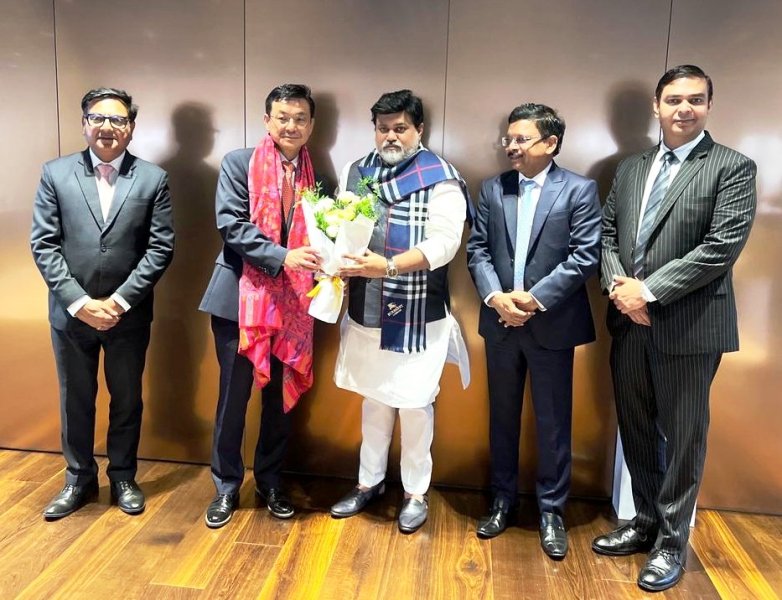

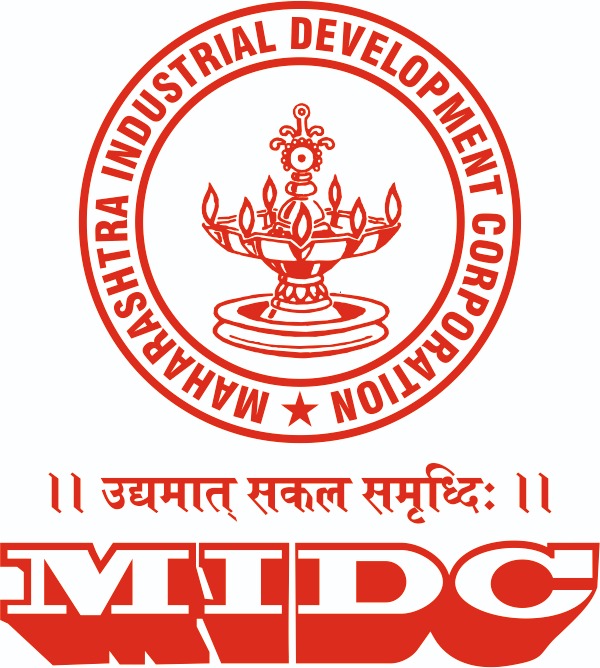 Our strategy for Maharashtra’s industrial development entails maintaining our position as India’s largest and most diversified economy, fostering a favorable business environment, and promoting emerging sectors like Biotechnology, IT, Electric Vehicles, Aerospace, Defense, Textiles and Emerging Technologies. Simultaneously, we aim to enhance the quality of life for our citizens by creating jobs, improving education and healthcare, and ensuring inclusive growth. We will leverage our human capital and invest in social infrastructure to elevate living standards. Additionally, our commitment to green and sustainable development involves harnessing renewable energy, efficient waste management, and environmental protection measures to lower our carbon footprint. Lastly, we intend to encourage innovation and entrepreneurship through supportive ecosystems, access to finance, mentorship, and collaboration with academia and industry, fostering a culture of excellence in our state.
Our strategy for Maharashtra’s industrial development entails maintaining our position as India’s largest and most diversified economy, fostering a favorable business environment, and promoting emerging sectors like Biotechnology, IT, Electric Vehicles, Aerospace, Defense, Textiles and Emerging Technologies. Simultaneously, we aim to enhance the quality of life for our citizens by creating jobs, improving education and healthcare, and ensuring inclusive growth. We will leverage our human capital and invest in social infrastructure to elevate living standards. Additionally, our commitment to green and sustainable development involves harnessing renewable energy, efficient waste management, and environmental protection measures to lower our carbon footprint. Lastly, we intend to encourage innovation and entrepreneurship through supportive ecosystems, access to finance, mentorship, and collaboration with academia and industry, fostering a culture of excellence in our state.
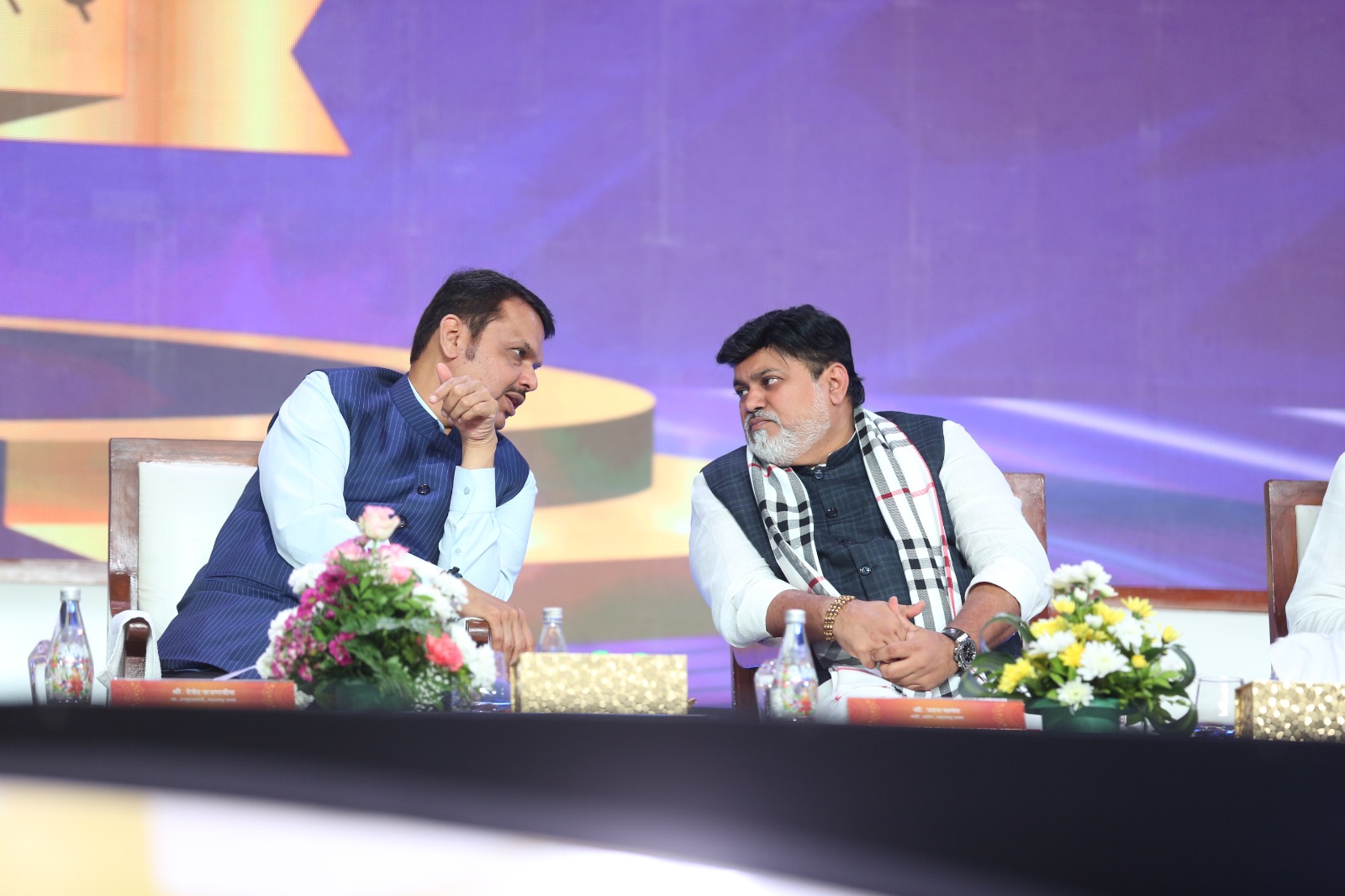 Japan and Maharashtra have longstanding trade and bilateral relationship with over 750 Japanese companies currently operational in the state. Japan can play a crucial role in growing the thrust sectors of Maharashtra including Electronics, EV, Semiconductors, Textiles, and other such associated segments. These sectors are represented by globally renowned brands in Japan and Maharashtra aims to partner with interested Japanese companies to build a collaborative investment plan in the state which will help these companies tap into the 1.4 Bn demand market in India, spurred by the unique manufacturing and location advantages offered by Maharashtra.
Japan and Maharashtra have longstanding trade and bilateral relationship with over 750 Japanese companies currently operational in the state. Japan can play a crucial role in growing the thrust sectors of Maharashtra including Electronics, EV, Semiconductors, Textiles, and other such associated segments. These sectors are represented by globally renowned brands in Japan and Maharashtra aims to partner with interested Japanese companies to build a collaborative investment plan in the state which will help these companies tap into the 1.4 Bn demand market in India, spurred by the unique manufacturing and location advantages offered by Maharashtra.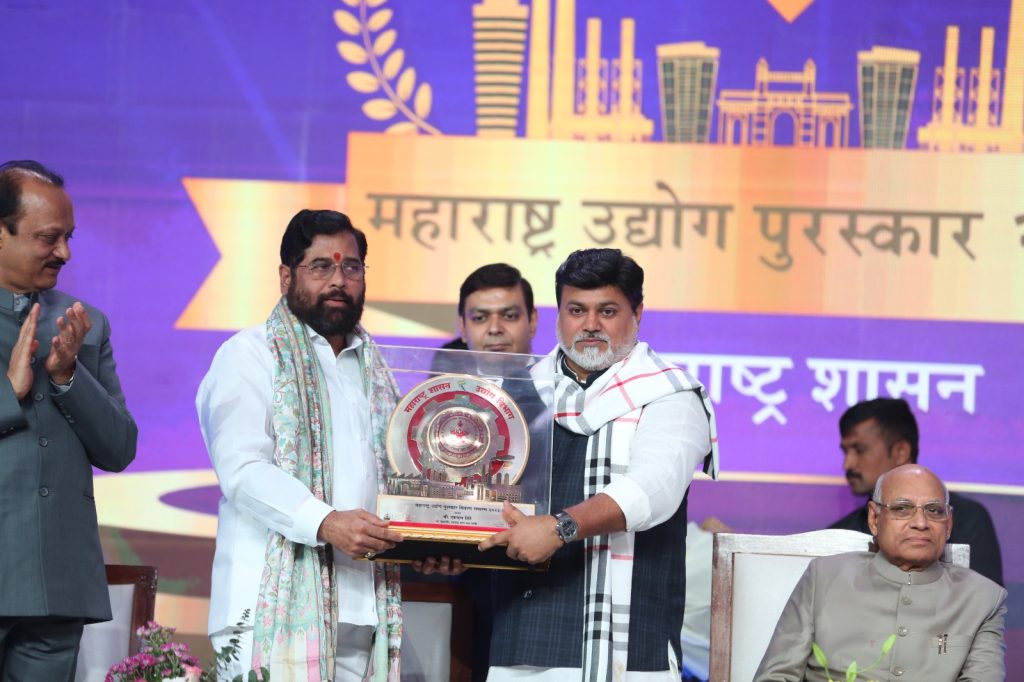 As the Minister of Industries, I feel an immense sense of pride when we discuss Maharashtra’s remarkable performance at the World Economic Forum 2023 in Davos. Hon. Chief Minister Shri. Eknath Shinde and the accompanying delegation has taken substantial steps towards fostering economic growth and innovation by signing MoUs valued at INR 1,37,666 Crore with companies spanning diverse sectors. This achievement is expected to pave the way for the creation of a substantial 1,01,389 job opportunities in the state, showcasing Maharashtra’s unwavering commitment to industrial development and job creation. Furthermore, the state’s prominent presence at Davos through its expansive pavilion, highlighting its strengths in biotechnology, aerospace, renewable energy, and emerging technologies, underscores its potential to ascend to a global leadership position in science, technology, and innovation. Additionally, Maharashtra’s proactive engagement with critical global issues, including climate change, healthcare, education, and rural development, exemplifies its social responsibility and unwavering dedication to holistic development.
As the Minister of Industries, I feel an immense sense of pride when we discuss Maharashtra’s remarkable performance at the World Economic Forum 2023 in Davos. Hon. Chief Minister Shri. Eknath Shinde and the accompanying delegation has taken substantial steps towards fostering economic growth and innovation by signing MoUs valued at INR 1,37,666 Crore with companies spanning diverse sectors. This achievement is expected to pave the way for the creation of a substantial 1,01,389 job opportunities in the state, showcasing Maharashtra’s unwavering commitment to industrial development and job creation. Furthermore, the state’s prominent presence at Davos through its expansive pavilion, highlighting its strengths in biotechnology, aerospace, renewable energy, and emerging technologies, underscores its potential to ascend to a global leadership position in science, technology, and innovation. Additionally, Maharashtra’s proactive engagement with critical global issues, including climate change, healthcare, education, and rural development, exemplifies its social responsibility and unwavering dedication to holistic development.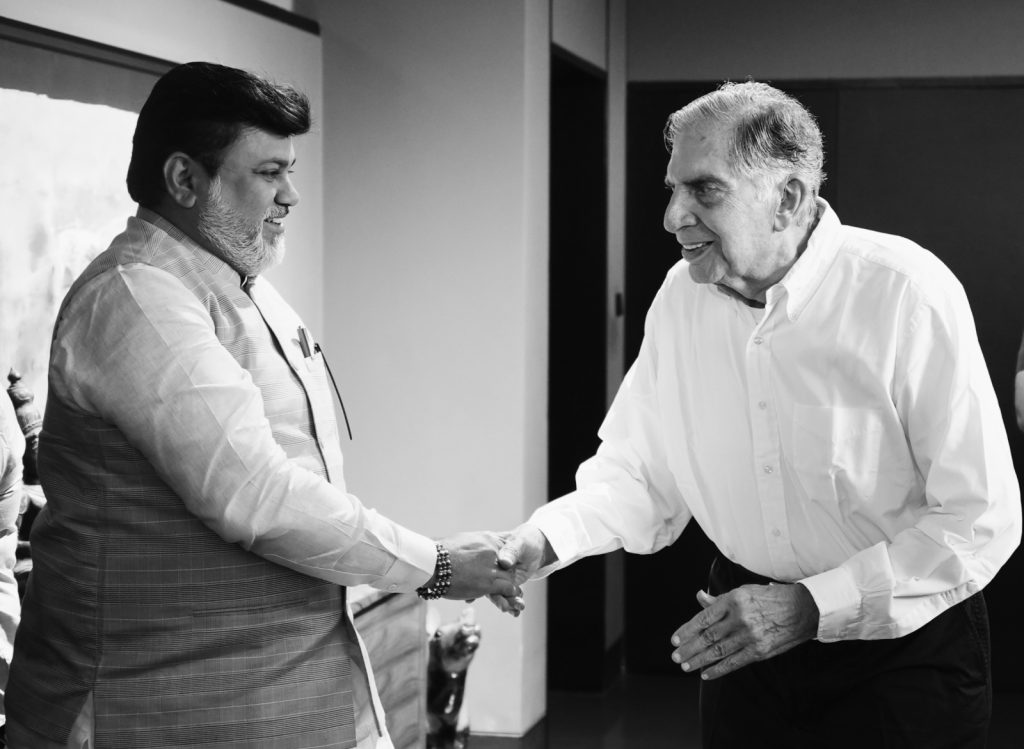 When I traveled abroad for roadshows, I had the opportunity to visit several museums established by top industrial brands. For instance, during a recent trip to South Korea, we visited Hyundai’s impressive Museum. The Tata Group has been a significant source of inspiration for many, which led me to propose the establishment of a Tata Group museum in Maharashtra. I made this request in the presence of our Hon. Chief Minister Shri. Eknath Shinde, Hon. Deputy Chief Minister Shri Devendra Fadnavis and Hon. Deputy Chief Minister Shri Ajit Pawar. I am delighted to inform you that Mr. Ratan Tata and Mr. Chandrasekaran have enthusiastically agreed to this proposal, and they have assured us that in the near future, they will create an international-level museum in our state. Additionally, Mr. Tata has offered his ongoing guidance and support for the development of Maharashtra’s industrial ecosystem.
When I traveled abroad for roadshows, I had the opportunity to visit several museums established by top industrial brands. For instance, during a recent trip to South Korea, we visited Hyundai’s impressive Museum. The Tata Group has been a significant source of inspiration for many, which led me to propose the establishment of a Tata Group museum in Maharashtra. I made this request in the presence of our Hon. Chief Minister Shri. Eknath Shinde, Hon. Deputy Chief Minister Shri Devendra Fadnavis and Hon. Deputy Chief Minister Shri Ajit Pawar. I am delighted to inform you that Mr. Ratan Tata and Mr. Chandrasekaran have enthusiastically agreed to this proposal, and they have assured us that in the near future, they will create an international-level museum in our state. Additionally, Mr. Tata has offered his ongoing guidance and support for the development of Maharashtra’s industrial ecosystem.